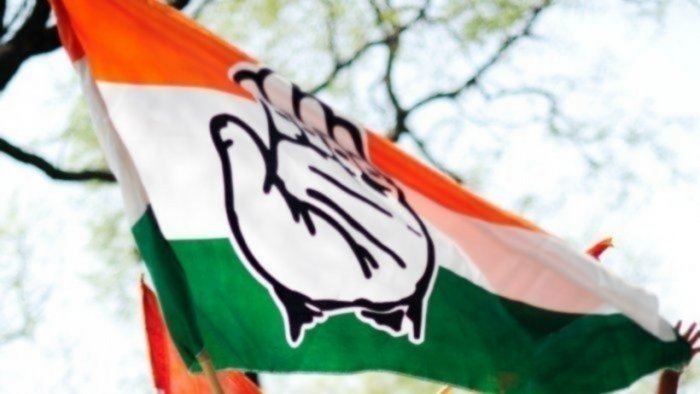The Congress appears to have suddenly revised its strategy to take on the Bharatiya Janata Party, both at the national and regional levels. It is evident that the Congress president Malikarjun Kharge’s letter to 21 like-minded organisations opposed to the BJP, inviting them to participate in the concluding function of the Bharat Jodo Yatra on the martyrdom day of Mahatma Gandhi on 30 January is not without great political significance.
By invoking the Mahatma’s name and highlighting his policies of non-violence, unity and communal harmony, the Congress is aiming to send a strong signal that the grand old party was fully committed to the ideology close to the Father of the Nation. Without saying it in so many words, the letter written by Kharge attempts to put the BJP in the opposite camp, thereby implying that it was not in any manner upholding the Mahatma’s core beliefs and was in fact pursuing politics of hatred and divisiveness.
There are a large number of Congress leaders who over a period of time have claimed that Gandhiji was not killed only by an individual, but by an ideology which finds many supporters within the Sangh Parivar. This issue has been a stand-off point between the two parties on many occasions and though it is inaccurate to imply that the followers of the Sangh believed in politics of hate and backed the thinking of Nathuram Godse and his associates, it is difficult to prevent politicians from raking up political furore over the matter.
In the latest instance, Kharge has made a conscious effort to send this message strongly and has chosen the martyrdom day to attack the BJP. The concluding function is being held in Srinagar, the heart of what was the erstwhile state of Jammu and Kashmir (now a Union territory) which is Muslim majority and where elections could be held later in the year.
Incidentally, Kashmir was one state where the Mahatma perhaps visited only once and that too after the partition of India and therefore his influence in the region has not been as pronounced as it was in other parts of the country.
The Congress also wants to test the waters in this Muslim dominated area, which was deprived of its special status by the Centre and thus has become a test case for the politics of the BJP. The collateral damage the Congress may have done to itself is to identify itself with the Muslim community there, despite the findings of the A.K. Anthony report that the loss in 2014 polls was because of a widely held perception that the Congress had tilted towards the minorities and thus the majority community at the national level had supported the BJP.
Another reason of Kharge writing this letter is to drive home the point that though many regional leaders have ambitions of leading an alternate front against the BJP, it was only the Congress which had the authentic credentials to do so. Thus, for any coalition against the BJP, the Congress would have to be its spearhead, something which many regional players may not necessarily endorse. There is still time for the 2024 elections but the Congress has already staked its claim on the leadership matter.
The letter seems to have been inspired by the call made by former Congress president Sonia Gandhi to like-minded parties at the Shimla Conclave in 2003 where she stated that the party was willing to lead an alliance against the BJP and the NDA, so all parties that were opposed to the saffron thinking could join in this collective effort.
However, at that point of time, there were many senior leaders such as Pranab Mukherjee, Arjun Singh, Makhan Lal Fotedar and Narayan Dutt Tewari who could strategise and make the political blue print successful.
Therefore, though the call to like-minded parties has a precedence, those in charge of the party affairs have to rise to the occasion, if this has to become a reality. What is worrying is that the party is being influenced by the left-of-centre thinking and could be playing into the hands of the Communists.
The Congress has to also lower its attack on the Rashtriya Swayamsevak Sangh, particularly after two important functionaries associated with the Ram Janmabhoomi and Ram Temple movement have supported the Yatra, much to the embarrassment of many of their colleagues.
The RSS has, in the past, supported the Congress in general elections; both in 1980 and 1984, the RSS cadres had backed the Congress and even after the mammoth victory following the assassination of Indira Gandhi, the RSS enjoyed a special relationship with Prime Minister Rajiv Gandhi through Bhaurau Deoras, the younger brother of the then Sarsanghchalak.
The Congress leadership also needs to be reminded that when the late Sanjay Gandhi and the RSS leadership patched up ahead of 1980 polls, Indira Gandhi’s younger son had made it emphatically clear that the meeting ground was not because there was a perception that like the RSS, he was also against the Muslims, which he was not, but because he and the Sangh were opposed to the Communists.
The Bharat Jodo Yatra has helped Rahul Gandhi to change his image to a large degree but the party has to strengthen its organisational base in order to reap political dividends. The fight in 2024 will not only be against a formidable Narendra Modi, but also against the might of the BJP organisation. Between us.
Congress invokes the Mahatma against BJP
- Advertisement -

